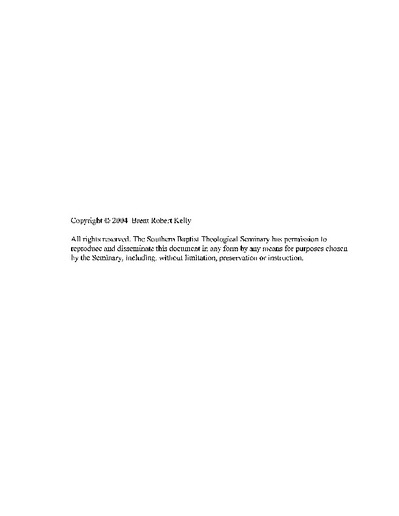The impact of the biblical principles of community and honor on the problem of ageism in quality-adjusted life years
Subject
Health care rationingOlder people--Medical care--Moral and ethical aspects
Medical ethics--Religious aspects--Christianity
Abstract
This thesis examines the problem of utilitarian ageism in Quality-Adjusted Life Years and contrasts it with the biblical principles of community and honor that are to characterize treatment of the elderly. Chapter 1 provides a general orientation into the issue of health care allocation. Attention is given to the history of modern health care allocation and describes its rapid evolution.
Chapter 2 provides a more detailed analysis of health care allocation demonstrating the necessity for some system of allocation in modern American health care. It concludes by presenting the QALY model as a potential basis for modern health care allocation decision making.
Chapter 3 examines the problems of QALYs as a basis for health care allocation. After the use of quality of life and health life years is evaluated the relationship between utilitarianism and QALYs is explored, focusing on QALYs' discrimination against elderly.
Chapter 4 examines the biblical perspectives of elder care, identifying the principles of honor and community as foundational. The underlining principles of justice and biblical love provide a foundation for biblical elder care.
Chapter 5 compares the QALY and biblical models. The comparison is accomplished by noting the contrasts in philosophical foundations, economic strategies and priorities in the distribution of limited health care resources.
Chapter 6 concludes by contending that QALY calculations are ageist and therefore an unjust basis on which to base decisions regarding the distribution of limited health care resources. This work contends that a potentially less efficient, but a better moral basis for resource allocation are the biblical principles of honor and community. These two principles enable a more holistic approach to dealing with the needy elderly in health care allocation.

